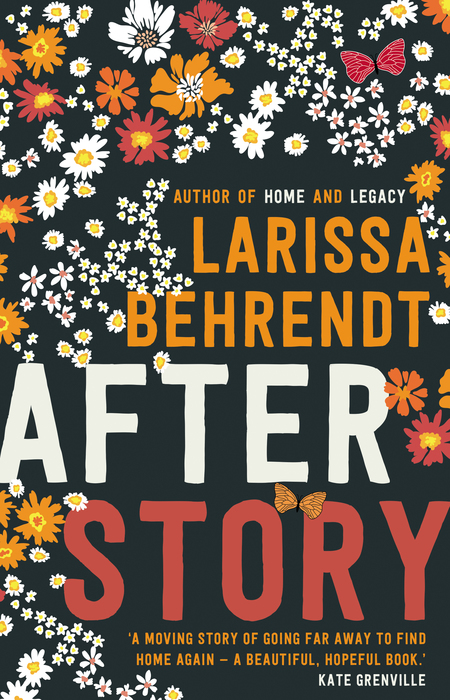In our information-saturated digital age, it is all too easy to think that everything that needs to be said, has been said.
But After Story by Larissa Behrendt, makes it abundantly and movingly clear that a great deal remains swept under metaphorical carpets or held close to the chest and that finding the stories that often lie beneath what is known and said is a herculean task in itself, and if they are finally articulated, have the power to reshape us in ways we might never have envisaged.
Indigenous lawyer Jasmine discovers this when she decides to take her mother Della, who lives a number of hours away from her daughter’s new life in the hustle and bustle of Sydney, on a trip to England to tour sites associated with her literary idols such as Jane Austen, Virginia Woolf and the Brontë sisters.
She’s not entirely sure it’s a good idea since the two have never been as close as Jasmine would like – she is the first to have their country town for further education and a flash city career, a move which has causes ructions with her mother, aunt Kiki and sister Leigh-Anne, though for entirely different reasons – but she wants to see if they can be close and figures the trip is the best way to make this happen.
Or at least she hopes it is; there are no guarantees in a family that has never said that it really means, except when it is defending itself against outsiders, and which is more adept at passive-aggressive maneuvering that it is about unburdening secrets and let the truth set itself free.
“My parents living apart but so close might seem like a strange arrangement to anyone who didn’t live in the Frog Hollow part of our town. Here, especially among the poor families like ours who never went anywhere, it was all one big interconnected web of kinship, with every degree of separation leading back to where it started with just two or three steps.” (P. 12)
But to be fair, the family has had a great deal with which to deal from the disappearance of Della’s eldest child Brittany 25 years earlier, which triggered immeasurable, lasting grief for everyone in the family (this grief is made raw all over again for Della when a young girl disappears on Hampstead Heath while she and Jasmine are in the UK), to the break up of Della’s relationship with her partner Jimmy (though they remained close) and to the friction resulting from having by necessity having to have a foot in two cultural camps, the white and Indigenous with the former doing its best to eradicate and oppress the former.
It’s a considerable burden but again not one that the family has ever really explored or spoken about, and as After Story begins, it is clear that Della and Jasmine are going to have to wade through a great deal of unsaid things to find some sort of resolution, assuming it is there to be had.
With a story told in alternating chapters, with Della and Jasmine explaining the day’s tour events from their perspective, After Story is exquisitely well told, possessed of a touchingly insightful narrative that seeks to find answers asked and not answered in one country in a wholly different country one the other side of the world which is as far from the cultural touchstones as it is possible to get.
It is a clever way in which to explore what ails Jasmine and Della’s relationship, and indeed the entire family, because it understands implicitly that when we are not sitting cheek by jowl with our day-to-day problems that we need to gain unprecedented insight into a range of issues that might otherwise remain buried under the ceaseless pressure of the everyday.
While there is a great deal of pain and sadness in After Story, which expertly weaves in backstory and exposition in a way that never feels clunky or forced, there is also slowly simmering hope and the promise of nascent renewal as Della, who rediscovers the wisdom and storytelling power of her culture and that she needs to say what is on her mind, especially when it comes to how much she loves her family, and Jasmine, who begins to see that perhaps she needs to find a way to knit her past and present together if she is ever to be truly happy and connected to her family, finally pull back the layers of their little-explored family.
Woven into this remarkably told story of the power of the unsaid to transform lives utterly when it finally sees the light of day, is a love letter to literature as we delve into the lives of Woolf, Austen and the Brontë sisters, whose voices have often been allowed to pale in comparison with their more heavily-promoted male contemporaries such as as D.H. Lawrence, Thomas Hardy and Charles Dickens.
It is a fascinating literary and feminist corollary to the way in which Della and Jasmine have their culture treated as second best by a colonising power that automatically assumed cultural superiority, when evidence increasingly shows that was far from the case – this even happened within their own family thanks to Della’s bigoted white father – which has in turn affected the way in which they have related to each other.
“Nothing prepares you for death and that’s a fact. People say, ‘time will heal’ but I [Della] can tell you the longer it gets, the worse it gets. At first there’s numbness. Police investigations, coronial inquests, people coming through the house. But when they go and the house is empty, well, that’s almost the worst time. That’s when it’s just you and your thoughts and nothing else.” (P. 134)
There is a great deal under exploration in After Story but this lightly and beautifully told story never feels burdened by the great weight of the issues at its core.
It doesn’t make light of them, of course, but nor does it sink beneath the weight of them with Behrendt weaving the heaviness of loss, grief, fallen dreams and misplaced hope into a story which dares to quietly and yet powerfully argue that even in the face of things long buried and the virulently corrosive power they possess, that it is possible to find healing and restoration and to have the past finally be fully and meaningfully put to bed.
It’s not forgotten, it can’t be not with its prevalent presence and enduring power, but it can be brought to heel, which we see happen in ways authentically hard fought for and yet tenderly as Della and Jasmine slowly and falteringly come to understand more of the other’s life and how what they assumed to be true may not be the full story.
Behrendt tells her wonderfully rich and substantial story with such nuanced hopefulness, good humour and insightful humanity that you will find yourself wholly wrapped up into After Story which is deceptively light and gentle and yet which possesses an impressive ability to immerse you in its truth and to help you to see what may not be able to be said close to home can find expression far away, setting you and those you love unexpectedly free in the process.

